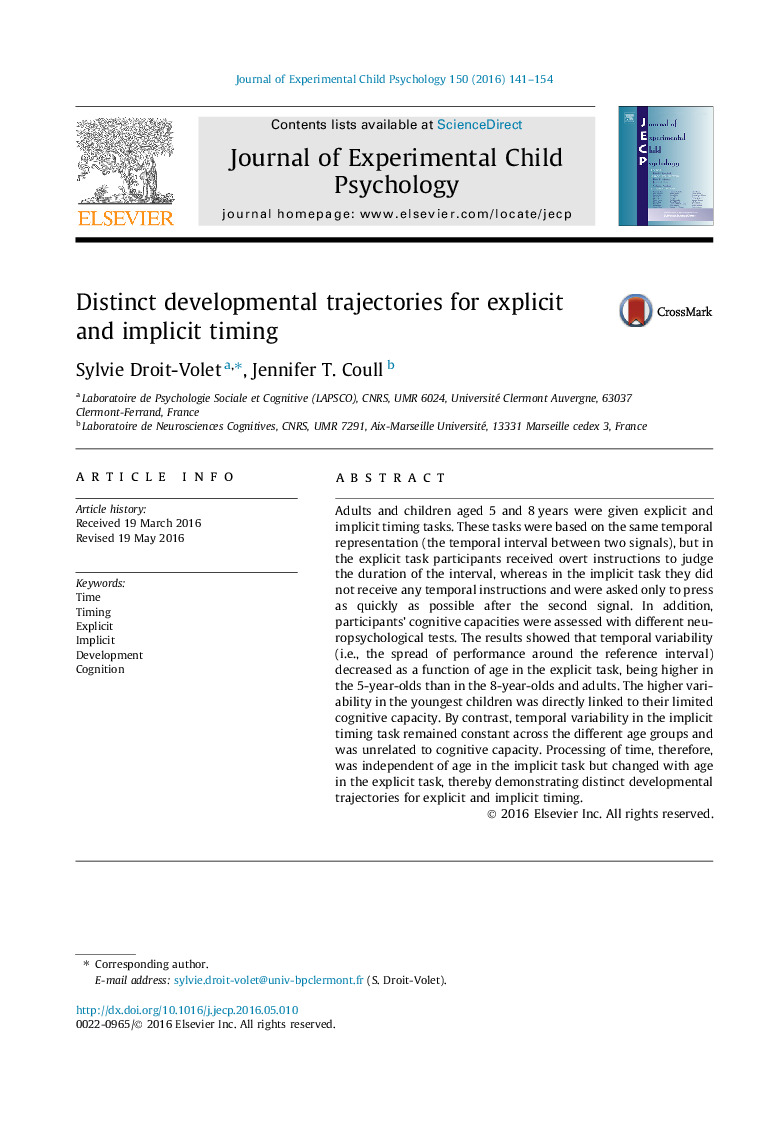| Article ID | Journal | Published Year | Pages | File Type |
|---|---|---|---|---|
| 7274505 | Journal of Experimental Child Psychology | 2016 | 14 Pages |
Abstract
Adults and children aged 5 and 8Â years were given explicit and implicit timing tasks. These tasks were based on the same temporal representation (the temporal interval between two signals), but in the explicit task participants received overt instructions to judge the duration of the interval, whereas in the implicit task they did not receive any temporal instructions and were asked only to press as quickly as possible after the second signal. In addition, participants' cognitive capacities were assessed with different neuropsychological tests. The results showed that temporal variability (i.e., the spread of performance around the reference interval) decreased as a function of age in the explicit task, being higher in the 5-year-olds than in the 8-year-olds and adults. The higher variability in the youngest children was directly linked to their limited cognitive capacity. By contrast, temporal variability in the implicit timing task remained constant across the different age groups and was unrelated to cognitive capacity. Processing of time, therefore, was independent of age in the implicit task but changed with age in the explicit task, thereby demonstrating distinct developmental trajectories for explicit and implicit timing.
Related Topics
Social Sciences and Humanities
Psychology
Developmental and Educational Psychology
Authors
Sylvie Droit-Volet, Jennifer T. Coull,
